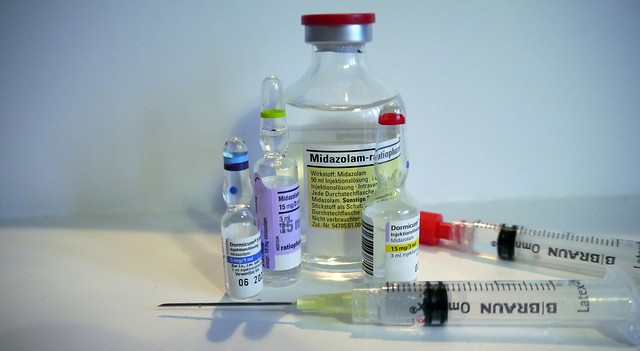An interesting article titled “Should Melatonin Be Used as an Alternative Sedative and Anxiolytic Agent in Mandibular Third Molar Surgery?” written by Torun et al. appears in the 2019 edition of the Journal of Oral and Maxillofacial Surgery. The article seeks to compare the effects of melatonin and midazolam in patients having wisdom teeth removed. Melatonin has been discussed on this site before as a supplement that can be taken to help with sleep at night and for migraine prevention, see the post Melatonin may be more effective than Amitriptyline for Migraine Prevention.
In the article by Torun the authors describe how sedatives are often given for wisdom teeth surgery but they can depress both the respiratory and cardiac systems and thus this requires increased cost for patient monitoring. When describing melatonin the authors mention how melatonin has sedative, analgesic, anxiolytic, and anti-inflammatory abilities and has been shown to improve wound healing in dentistry. The authors devised a study of 90 patients to explore the sedative effects of melatonin when compared to midazolam in patients having lower wisdom teeth extracted. All patients completed a visual analog scale (VAS) to measure anxiety prior to surgery using a scale of 0 to 10 with increasing anxiety along with the the digit symbol substitution test (DSST) and trail making test (TMT) that consisted of a part A and part B. The DSST is an intelligence test and the TMT is used to assess cognitive impairment. The 90 patients were divided into three groups with 30 patients in each. The first group received melatonin (10-mg capsule), the second group received midazolam (zolamid 15 mg/3 mL), and the third group received placebo. Sixty minutes after receiving the medication or placebo the patients completed all three tests again (VAS, DSST, and TMT).

The authors found no differences in scores among the three tests between the three groups prior to the administration of the medication or placebo. The results showed that anxiety decreased most in the group receiving midazolam but anxiety in the group receiving melatonin also decreased significantly compared with the placebo group. The greatest decrease in DSST scores was in the group receiving midazolam with no significant difference between groups receiving melatonin and placebo. The greatest increase in TMT part A and part B scores was in the group receiving midazolam compared with the other groups and there was no significant difference between the placebo and melatonin groups for TMT part A and part B scores. The study also assessed the Ramsey Sedation Scale (RSS) score every 5 minutes during surgery and found that the group receiving midazolam had the highest RSS scores. The group receiving melatonin had statistically significantly higher RSS scores than the placebo group at 25 minutes and 30 minutes into surgery but not prior to this time. The authors state
“It was determined that melatonin could be an alternative anxiolytic agent and it provided a more comfortable process for the patient and the physician compared with the placebo group…it can be concluded from these results that melatonin provided patients and surgeon with a comfortable surgical process by providing sufficient anxiolysis to patients without affecting their cognitive and psychomotor functions.”
The authors feel that the results show that melatonin is a safe and effective anxiolytic agent that has the benefit of not being a sedative and thus does not come with possibly serious side effects and lengthy recovery times that sedatives do. The authors do point out however that melatonin may have side effects that should be better explored and it is not clear what the optimal dose is. The authors also mention prior studies that have shown patients have decreased anxiety when given melatonin before dental treatment and other procedures.
